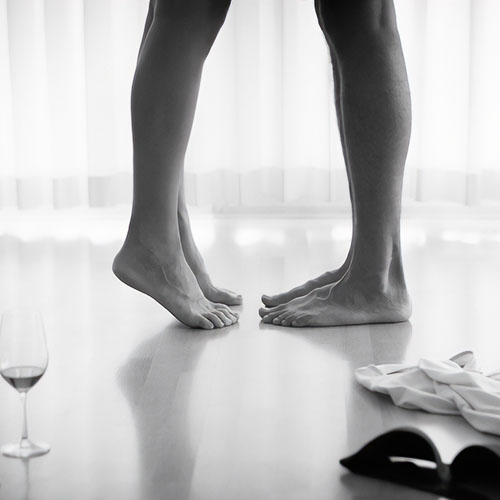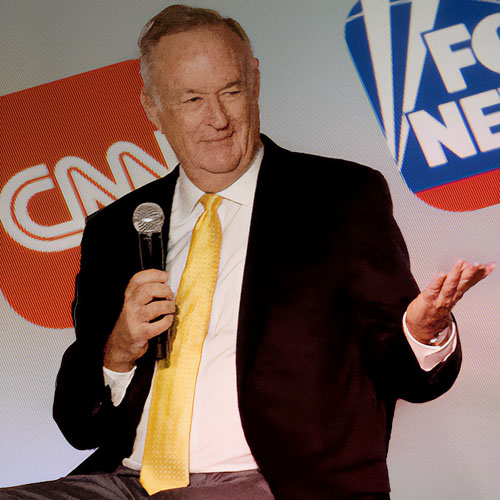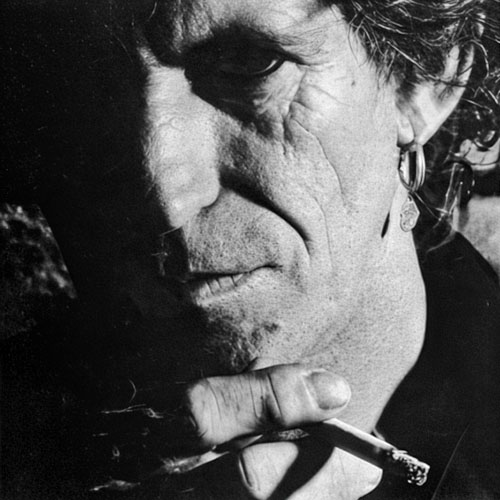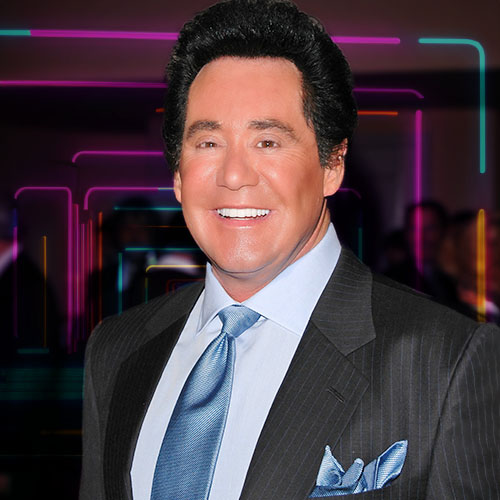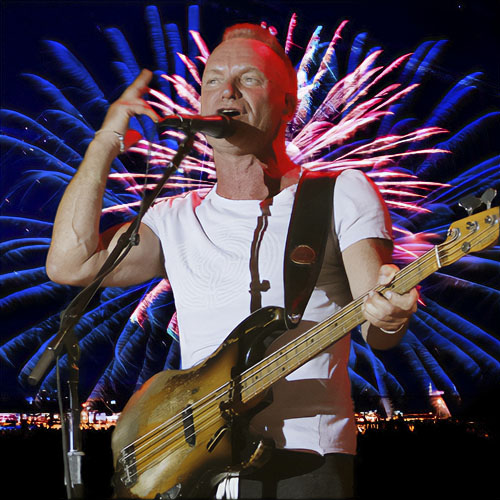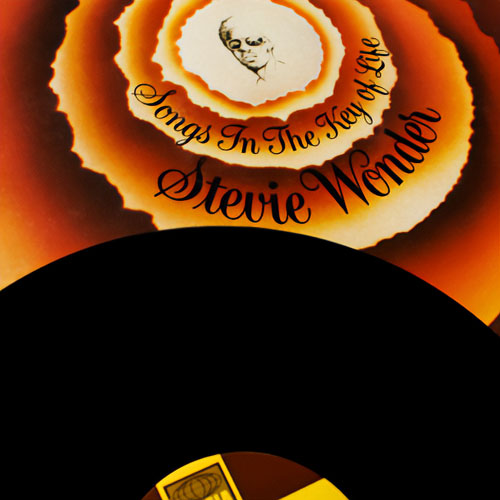“The people will overcome — and our government will be set up the way the people want it to be set up.”
Johnny Cash — The Penthouse Interview
It has now been twenty years since Johnny Cash first surfaced as a singer, and in the course of establishing himself as the unquestioned king of country music he has recorded nearly 350 songs, sold more than 30 million records, and currently earns more than $3 million a year.
Almost equally pleasing to Cash is the increased acceptance he’s won for country music. Prior to his emergence, such fabled Southern troubadours as the late Jimmie Rodgers and Hank Williams could win followings only along the corn pone circuit. Cash, as welcome at Carnegie Hall as he is at the Grand Ole Opry, brought country music to the cities. And also to the young-pop idols Bob Dylan and Kris Kristofferson are among the many youthful singer-composers strongly influenced by the Nashville-based balladeer. As we head into the second half of the seventies, Johnny Cash seems a sure bet to become the most dominant figure in the entire history of U.S. country music. For a man who was a failure as an appliance salesman at twenty-three. Cash has clearly come a long way since those early lean years.
Born in Kingsland, Arkansas, on February 26, 1932, John R. Cash, at the age of three, was brought by his parents to Dyess, Arkansas, where the Roosevelt administration had established a federally financed farm settlement to aid depression-poor families. Cash’s hardworking father was given a twenty-acre farm, a small house, a barn, a mule, a cow, and a plow — and eventually paid back the government for everything it had advanced him. One of seven children, John (which is what his friends call him) grew up on a steady diet of fatback, turnip greens, and hard work — he was picking 350 pounds of cotton a day by the time he was fourteen. Following his high school graduation in 1950, Cash worked for two weeks on a Detroit automobile assembly line and then enlisted in the air force. After a four-year stint in Germany — where he learned to play the guitar — John returned to Memphis and a job selling appliances.
Cash was a lamentably bad salesman. “Maybe that was because I hated every minute of it,” he recalls. To supplement his meager income, John formed a trio with local auto mechanics Luther Perkins and Marshall Grant, and they were soon playing church socials and county fairs. After doing a series of fifteen-minute Saturday afternoon radio shows in Memphis, Cash decided they ought to audition for Sun Records. In early 1955, their first recording, “Cry, Cry, Cry,” sold 100,000 records across the South. “Folsom Prison Blues” came next, and when it rose to the top of the country music charts Cash quit his job — and has been singing country music ever since.
Johnny Cash is much larger up close than he appears to be on stage. A big, barrel-chested man whose face looks like it crashed into a wall, Cash looks raw, speaks plain — and is surprisingly gentle. At the same time, however, the passivity seems tightly controlled: Cash has an enormously strong personality that he underplays. His sidemen are more than suitably impressed by their boss and talk of him in terms approaching sainthood. And it often seems that’s what he’s aiming at.
In addition to being a remarkable singer and songwriter, Cash is also a consummate performer. Several times a year he plays week-long engagements at the Las Vegas Hilton (which has that gambling town’s biggest showroom), and his usual complement of two SRO crowds a night don’t leave disappointed. Cash is often onstage for one and one half hours, and virtually every song he performs has won him a gold record. June Carter, his wife of seven years, joins him for several songs about midway through the proceedings, and occasionally their four-year-old son, John Carter Cash, also gets into the act. (John and June have both been married before, which accounts for their six daughters.) Cash knows how to bend a lyric just so, and his gravelly, slightly off-key baritone seems able to dive into bottomless pits. Unlike a number of performers these days, Cash is better in person than on his records. And his records are superb.
After catching one of his midnight performances, the author met Cash the next morning in the Hilton’s Imperial Suite, a spacious and dandy refuge reserved for whichever entertainer (Ann-Margret, Tony Bennett, Barbra Streisand, Bill Cosby, etc.) is currently headlining downstairs. Cash was stretched out on the carpet, dressed in one of the black shirt-and-slacks outfits he performs in (and apparently lives in as well). He quickly bounded up, got coffee, and then sat down to talk. Cash really can’t abide Las Vegas-he doesn’t gamble and the desert air never fails to play havoc with his throat yet there are at least a couple of reasons he keeps playing the town. One is the six-figure weekly salary he draws from the Hilton. Another is the rousing reception he gets from high-rolling crowds who aren’t country music buffs. Cash’s singular ability to turn virtually any audience on to his brand of music provided a logical opening for the interview. – Larry Linderman
Although the music scene seems to be composed of enemy camps, you’ve somehow become a superstar not only to country music fans, but also to folk, rock, and gospel followers. What accounts for that?
Cash: Well, to start with, I have no illusions about who Johnny Cash is: I’m a country boy and I’m a country singer. But I’ve always felt that a lot of country songs — especially the ballads — have something to say to everybody.
It finally just gets down to how they’re presented; are you gonna present a song to people in a way that’ll get them feeling the same way you feel about it, or will you do it in such a way that people will end up thinking, “Nope, that’s not for me.” I think I was aware of this as early as 1956 when a song I wrote called “I Walk the Line” was one of the first so-called country songs to become a pop hit as well.
Musical innovations aside, what do you think your songs communicate to people?
Cash: Love. I sincerely love people. And I especially love children. Now that I have six daughters and a little boy and I’m forty-three years old, I’ve learned to appreciate children. So I have them in mind when I make my records, and I also have the church people in mind, because that’s part of my life now, too. And I also have convicts in mind. I try to remember that the airwaves belong to everybody — anybody can turn on a radio — so I try not to put my music into a bag. The same is true of myself, ‘cause I’ve never wanted to be put in a bag either. You know, even in the fifties, people in the country music business in Nashville considered me some kind of unorthodox left fielder, mostly because I came down from Memphis, where Elvis and Carl Perkins and Jerry Lee Lewis and I had been putting out all that strange stuff on Sun Records. I thought a lot about being considered weird — and it was all right with me. I bought it. It’s still all right with me, ‘cause I still don’t want to be put in a bag. And because of that, I’ll continue playing to different kinds of audiences. Like prisoners — I just played an Oklahoma state prison and a Mississippi state prison. And before that, I played a Billy Graham crusade and a Sunday school class. I just think it’s fascinating for a man to spread himself around, to walk through different doors, see different groups of people, and understand and feel what they react to. You learn a lot.
You’ve been extremely critical of the way prisons are run, and once said, “I don’t see anything good coming out of prison. You put men in like animals and tear the souls and guts out of them — and let them out worse than when they came in.” Exactly what did you mean by that?
Cash: I’ve got a good friend named Glenn Shirley, who wrote “Greystone Chapel” on my Folsom Prison album. He’s been out of San Quentin for three and one half years now, and he’ll tell you — and I’ve seen it — that the prison system, like it was and probably still is at San Quentin and Folsom and some of the other big hell holes, is just a school for crime. On top of that, prisons are terribly overcrowded. Tennessee State Prison, right in my hometown of Nashville, has about 5,000 inmates — and at night there’s only thirty people to take care of the needs of all those guys. They don’t even have a doctor assigned to the prison. Can you imagine that many people with no doctor on call? Listen, that’s just an example of the lack of concern people have for prisoners. And we keep putting men into settings like that. It’s as if we’re all saying, “Okay, let’s send this man who’s offended society to the school for crime that we call our state joint.” The result is that when the guy comes out he’ll be able to pull off a bigger-and-better robbery, or kill somebody, and that’s what’s been happening.
Do you see any signs of change in the penal system?
Cash: Well, decent things are in the works in different places. Tennessee, for example, is trying to build about seven different regional facilities around the state — farms where first offenders and nonviolent criminals are sent.
Some of these prisons-without-walls even have work-release programs — prisoners are allowed to go home on the weekends if they’re sent to the facility that’s in their area.
A lot of prisoners in these places have been convicted of marijuana charges, and I personally don’t think they should be in prison in the first place. But so long as the law stands against them, they should at least be put someplace where they can improve their lot and be trained towards going along with those laws.
Would you like to see all marijuana legislation abolished?
Cash: Well, I just think there’s a lot of money spent on enforcing marijuana laws that could be spent for better causes. As to whether it’s harmful or not: I smoked grass for a seven-year period during which I did everything. I was on amphetamines, barbiturates — and I smoked a lot of grass. But when I smoked it, I was usually on amphetamines, so I really can’t say whether marijuana ever did me any good or any harm.
What first got you into drugs?
Cash: The same thing that gets anybody into drugs: they make you feel good. It was a thing I did gradually, and it felt so good when I first started taking pills in ‘58 that I just kept trying things that felt better. Drugs were an escape for me, a crutch — a substitute for what I now feel. I was looking for a spiritual high to put myself above my problems, and I guess I was running from a lot of things. I was running from family, I was running from God, and from everything I knew I should be doing but wasn’t. I was rebelling, and really for no reason. So I wound up living from high to high, and the highs got higher — but the lows got lower. So low, sometimes, that I realized I was at the bottom, and that if I didn’t stop I would die.
A lot of people who knew you then are still surprised that you didn’t die.
Cash: Yeah, all my friends had me written off, and I think some of ‘em are still mad at me ‘cause I rewrote the script. But I almost accommodated them, that’s for sure. My first marriage was in trouble when I lived in California, and I have to take the blame for that — because no woman can live with a man who’s strung out on amphetamines. My first wife put up with me for years after I was hooked, but I’d go home and try to put all the blame for it on her, and then I’d get into my jeep or camper truck and head for the mountains.
And I’d get so stoned every time I’d leave home to go into the desert or the mountains that I’d wreck whatever I was driving. I totalled a lot of vehicles, and I guess I must’ve broken twenty bones in my body — my toes, my jawbone, my nose, my fingers, my elbow, my foot, my kneecap. I don’t know why I didn’t kill myself then. I think it was because God was really good to me, which is why I’m where I am now spiritually.
During that seven-year period — from 1961 through 1967 — what was your life like?
Cash: It was like I was living with a bunch of demons. I don’t want to get deep into demons ‘cause I don’t know that much about demonology, but I used to get into the desert, and I’d start talking to them. I’d talk to the demons and they’d talk back to me — and I could hear them. I mean, they’d say, “Go on, John, take twenty more milligrams of Dexedrine, you’ll be all right.” And I’d say, “Yeah, but I’ve already had forty today.” And they’d answer, “Take twenty more, it’ll be good for you, it’ll make you feel just fine.” So I’d take ‘em and then continue talking back and forth to the demons inside me.
That doesn’t sound too healthy, John. How did you feel about it at the time?
Cash: I felt completely crazy — and I was. Really, I was completely crazy. One time I remember going into my camper truck and looking at myself in the mirror. I put my hand over my face and peeped through my fingers at myself and said, “Let’s kill us.” And then I said, “I can’t be killed. I’m indestructible.” Well, I looked myself right in the eye and said, “I dare you to try.” So I got in that camper truck and started driving down a mountain. The truck turned upside down twice, but the only thing I broke was my jawbone, which still gives me a pain now and then. It was really a battle that raged within me for a long time — but somehow I survived.
What finally caused you to give up drugs?
Cash: God. The times when I was so down and out of it were also the times when I felt the presence of God, or whatever you want to call it in whatever religion you might follow. I felt that presence, that positive power saying to me, “I’m still here, Cash, to draw on whenever you’re ready to straighten up and come back to life.” Well, that’s what finally happened, and I’m not playing church now. I was brought up in the church when I was a boy and I didn’t play church then. The spiritual strength I have is real, it’s solid, and I don’t compromise it. It’s something within me that nobody can argue about with me, because it’s a very personal strength that I feel and that I draw on. That’s what pulled me out of it. But there were people I used — like June Carter, who stuck by me all those years while I was on drugs and fought me, to the point of stealing my pills and destroying ‘em whenever she could. And then feeding me and trying to get me back on my feet. Strangers were also used, like the sheriff in the last jail I was in.
Why had you been arrested?
Cash: I didn’t really find out until the sheriff told me, ‘cause I’d been so high at the time that I didn’t know what I was doing. I’d been out banging on somebody’s door, trying to get in to use the telephone after wrecking my jeep in the woods in north Georgia — I had no idea where. The next day I woke up in the Lafayette jail, and the sheriff there unlocked my cell and led me out to his desk. He put a tray on the desk and said, “Here’s your money — and here’s your dope …. Now get out of here and go kill yourself.” I said, “What? What do you mean, ’go ki II myself’?” And he told me, “You got the power to do it and you’re trying to, so go ahead and finish the job. You don’t have far to go.” I said, “I don’t want to kill myself.” And he answered, “Of course you do. You almost did. When we brought you in here I called a doctor and he gave you a shot and put you to sleep. But he said you evidently want to kill yourself, so there’s your dope — go ahead and do it.”
Are the religious songs you now sing in your shows a result of your giving up drugs?
Cash: No, I always sang those songs — but I never did sing them with the feeling and the free spirit I have since I quit the dope. You know, I used to sing “Were You There When They Crucified My Lord?” while I was stoned on amphetamines. I used to sing all those gospel songs, but I really never felt them. And maybe I was a little bit ashamed of myself at the time because of the hypocrisy of it all: there I was, singing the praises of the Lord and singing about the beauty and the peace you can find in Him — and I was stoned. And, miserable; I was climbing the walls. But regardless of how I felt inside, those songs have always been a part of me. They were the first songs I ever heard — and I know this sounds corny, but they’re the songs my mother sang to me. Gospel songs are the ones I love the most, and I can never wait for the part of my show when I sing them.
Is that the high point of a night’s work for you?
Cash: It’s just one of the high points, because I really brighten up when my wife June comes out to sing with me. She’s my spotlight, and there’s a magic to her that just fires me up about the time I really start getting tired onstage. And I also enjoy singing things like “The Ballad of Ira Hayes,” which is one of four Peter La Farge songs about American Indians that I’ve recorded. Peter was a great writer and through him I came to love the American Indian. We were very close just before he died about ten years ago, and I sat up a lot of long nights listening to his songs and stories about his people. I’ve always loved Indian legends, and by now I’ve got about a thousand books on the subject.
A number of press reports have stated you’re part Cherokee. Are you?
Cash: No, I have no Indian ancestry. Some folks have said I do, but I can’t find it anywhere — and I’ve got my family tree. Of course, when I used to get high, well, the higher I got, the more Indian blood I thought I had in me. And a lot of people wanted me to be part Indian, especially after I recorded the Bitter Tears album.
Have you performed those songs before Indian audiences?
Cash: I sang ‘em at Wounded Knee eight years ago. I went there to help the Sioux raise money to build a school; back then Indians hadn’t started to speak out for themselves, and neither had any national figures.
In view of your efforts on behalf of prisoners and Indians, a number of people were surprised when, after returning from a tour through Vietnam, you declared yourself “a dove with claws.”
Cash: I thought that was awful clever of me at the time — and now I wonder where I ever got that stupid line. My thoughts about Vietnam really had to do with our boys over there. Like one night at Long Binh air base, a Pima Indian boy — crying, and with a beer in his hand — came up to the stage while I was singing “The Ballad of Ira Hayes,” which is about the Pima Indian marine who helped raise our flag at Iwo Jima. At the end of the song, that young Indian asked me to take a drink of his beer, and with the tears running off his chin, he said, “I may die tomorrow, but I want you to know that I ain’t never been so alive as I am tonight.”
Things like that made me to want to support our guys, because I loved them so much. I knew they didn’t want to be there, which is why I went over myself. I was asked to come to Vietnam and I was paid well, but right away we all got caught up in the whole thing. Pretty soon June, Carl Perkins, and I were doing seven and eight shows a day, sometimes for only ten people in a hospital ward. Anyway, please forgive me for saying I’m “a dove with claws.”
Not long after your return from Vietnam you were invited to perform at the White House and created a stir when you refused to sing the two songs President Nixon had reportedly requested — “Okie from Muskogee,” which puts down longhairs, and “Welfare Cadillac,” which characterizes welfare recipients as cheats growing affluent on the public dole.
Cash: I think everybody got that whole thing wrong, because the president didn’t ask me to do those songs — one of his secretaries did. I think they wanted me to believe that President Nixon was familiar with my music, but evidently they’d just picked up a copy of Billboard, found a couple of songs in the Top Ten — and then took it from there. I simply told them, “Look, ‘Okie from Muskogee’ is Merle Haggard’s song, it’s identified with him, and I won’t do it because it wouldn’t be proper. As for ‘Welfare Cadillac,’ well, I’ve heard the song once, I don’t like it, and it doesn’t say anything I want to say. If the request actually does come from the president, tell him that our program is already planned and that I certainly hope he’ll be pleased with what we do.”
Incidentally, I took my daddy with me to the White House that night, which is one of the main reasons I went. He was a soldier during World War I, and in 1916 he served with General Pershing’s forces and helped chase Pancho Villa back across the Mexican border after Villa had burned down Columbus, New Mexico. My daddy’s a patriot and gave me a sense of history and a strong love for my country. And I really enjoyed walking around the White House, seeing the paintings and other things — like the room where Andrew Jackson’s mountaineers came and swung on the curtains and poured their moonshine on the carpets.
Anyway, that White House performance took place in 1970, and at the time President Nixon was very popular, but it probably wouldn’t have mattered if I’d been asked during the start of the scandals — I would’ve gone, because it was a performance at the White House. I was glad to go.
Did Watergate upset you?
Cash: Yeah, it really made me sick — sick and ashamed. But Watergate is just another growing pain, another lesson for us, and I think eventually we’ll be a greater country because of it. Right now, we’re watching a housecleaning going on. You know, even though we’re set up on a capitalistic system, Congress picked Rockefeller to pieces during the vice-presidential hearings; they really put him down because of all of his money in a way, they were putting down the very system the government stands for, and I think that’s some much-needed housecleaning right there. There are going to be quite a few changes made because of Watergate.
In time, we’re going to see that the whole Watergate mess was one of the best things that ever happened in the U.S. I may be dead wrong, of course, but I think Watergate is gonna make us a better democracy: the people are going to rule. That’s really what I say in “The Ragged Old Flag.” We’ve had some hellish wars that have just about torn the country apart, and now we’ve had these scandals. Well, the flag is symbolic of the spirit of the people and of the way of life we’ve cut out for ourselves. Sure, our flag may have holes in it, and it may be ragged and tattered and torn — but it’s still waving. It’s going to overcome. The people will overcome — and our government will be set up the way the people want it to be set up. That’s going on now; it may not look like it, but that’s just because we’re housecleaning.
And apparently — judging by your attendance this fall at the trial of Haldeman, Ehrlichman, et al. — you don’t wish to see any dust swept under the rug. What prompted you to show up in the courtroom?
Cash: James Neal, the government’s prosecuting attorney in the Watergate trial, is also my attorney, and he invited June and me to sit in on our way back from an afternoon with Billy Graham in Norfolk, Virginia. So we went, and we heard the tape of Nixon talking to Haldeman on June 23, 1972, which was a cover-up conversation.
I had a chance to talk to Haldeman. As a matter of fact, he was the first man I saw when I walked into the courtroom, and his mouth dropped open and mine did, too. He immediately turned to someone else and then looked back at me with an expression on his face like, “What in the hell is he doing here?” When the court took a recess I walked over to him and introduced myself and he said, “I tell you, James Neal is really giving me a lick today. Not only is he on the other side, but he’s got my favorite entertainer on the other side with him.” I told Haldeman, “Wait a minute, I’m not on any side. I’m here as a spectator. You’re a piece of American history, whether you like it or not, and I’m just here to witness it.”
He asked if we could have a cup of coffee together, so June and I went out with him and Ehrlichman, who never did say anything except hello. At the table, the first thing Haldeman asked was, “You’ve been on the hot seat, haven’t you?” And I told him I sure had been — he was talking about the couple of times I’d been before a judge on pill busts. He said, “You know how it feels?” And I said, “Yeah, it don’t feel good, does it?” Then he started to say, “Look, I just want you to know —” and I interrupted him and told him, “Wait a minute, you don’t have to explain anything to me, I’m not here to decide what side I’m on, I’m only here to witness.” He went on, though, and said, “I just want you to know that I did what I thought was right at the time. I was only trying to do my job.” I told him I wasn’t questioning that, and then we talked about the music business.
After we left Washington, June and I talked about Haldeman a lot. I really liked him as a person, and he seemed exactly what a president of the U.S. needed for that job. I think he was doing what he was told to do, and also making a lot of recommendations on his own that he thought were right. And the whole thing still makes me sick.
Do you think you’re becoming somewhat of a political radical?
Cash: No, I sure don’t. I look at it the other way: I’m just tryin’ to be a good Christian. You know, there’s three different kinds of Christians. There’s preaching Christians, church-playing Christians, and there’s practicing Christians — and I’m trying very hard to be a practicing Christian. If you take the words of Jesus literally and apply them to your everyday life, you discover that the greatest fulfillment you’ll ever find really does lie in giving. And that’s why I do things like prison concerts. Compared to that, projects like the television series I did, for example, have very little meaning for me.
Did you enjoy weekly TV?
Cash: It was all right the first year, but I soon came to realize that I was just another piece of merchandise to the network, a cog in their wheel, and when the wheel started squeaking and wobbling they’d replace me with another cog. Besides that, I began to feel as if every part of my personal and family life was being merchandised and exploited; I felt as if they were stealing my soul. To get ratings, they immediately started putting guests on my show that I couldn’t — if you’ll pardon the expression — relate to. People about whom I felt nothing, and that just made me uncomfortable. Eventually I was walking around thinking, “I don’t have to do this. What am I doing this for?”
If weekly television was such a bummer for you, why have you agreed to do a new series next fall?
Cash: Because it’s a dramatic show that won’t give me the same problems. I’m going to play a character named John Andrew Jackson Stone, a country boy who’s been through Vanderbilt Law School and who’s a detective in the Nashville police department. Actually, I’m playing Johnny Cash as a policeman. The character has always wanted to be a singer, and the Nashville music scene will be part of the show. The whole thing grew out of a guest shot I did on “Columbo” last year.
What kind of acting ambitions do you have?
Cash: None. I’ve never had any ambition to become an actor, because I love music much, much more than I could ever love acting. But I think I’ll enjoy playing myself in the series, and another good thing about it is that it’ll keep me home for five months we’re gonna be filming in and around Nashville. That’ll give me a lot of time to sit around and talk to songwriters, and that’s important.
Why?
Cash: Because it winds up with me writing songs. Like, if I’m around Bob Dylan, well, he doesn’t talk much. He’s a very quiet, kind person who loves his wife and children very much. We’re in different worlds — he’s a few years younger than I am and from Minnesota, and to him, Johnny Cash was always somebody from the South who sang those country songs. I think he has a great respect for my work and I certainly have a great respect for his, but it’s not like we can’t wait to get together to sit down and write a song. Actually, we did write a song together once when he visited me at home. We were fishing at my boat dock and when we sat down to eat lunch we wrote “Wanted Man” — and we could hardly wait to get through with that song so we could go back to fishing. What I get from him is the same thing I get from all great songwriters: inspiration. It’s like, I’ll hear something they’ve written and think, “Why couldn’t I write that — that’s the way I think, too.” Maybe it’s more like a challenge than an inspiration, because after I’ve sat around with guys like Dylan or Kris Kristofferson and they’ve gone, I’ll think, “Yeah, that’s a good song he wrote, but maybe I can do better.” And at that point I’ll start writing.
Do you have the same effect on other songwriters?
Cash: I think so. Especially when I have songwriters’ parties at my house, which is every three or four months or so. We’ll sit in the living room and pass the guitar around, and anybody there who sings and writes knows they’re going to have to come up with something. That sure motivates me to write, because I know I’ll be in the hot seat sometime during the night, so I’ve got to have a song good enough to compete with what these other people will present. It’s really a thing we all look forward to, and sometimes those nights have been memorable.
One final question: The people who know you best seem to think you have a mystic destiny. Do you feel that way too?
Cash: I don’t know what’s in store for me, but I know there are things I’m going to do that I haven’t touched on yet. I don’t know what they are, but I feel it. It’s almost like when I was seventeen years old and my mother heard me sing for the first time after my voice had dropped. She said, “God’s hand is on you, you’re going to be a well-known singer.” I smiled at her and said, “Oh, momma.” But I knew it myself. Back then, the big deal was singing on the radio — and when I was seventeen years old, I knew that I’d be singing on the radio. And that people would know my name. So yes, I feel there are things I’m going to do, but I don’t know what they are. I’m writing a book about my experiences and beliefs, but that’s not it. And the TV series may work out, but that’s not it either. I’m not yet sure what’s meant for me, but I believe I’ve got a lot to do — and whatever it is, I hope it’s worthwhile.
As it turned out there was very much in store for Johnny Cash between 1975 when this was published and his death in 2003 at the age of 71. We could never do justice in a footnote to him impact on music in general and many, many people specifically. We will say that if you have even remote interest in the man and find yourself in Nashville, TN, it will be worth your time to stop by the museum. He recorded over 1,000 songs and sold 90 million records before he died, and out of all that we mostly remember that given the option, we should avoid burning rings of fire and probably not have a boy named Sue.















